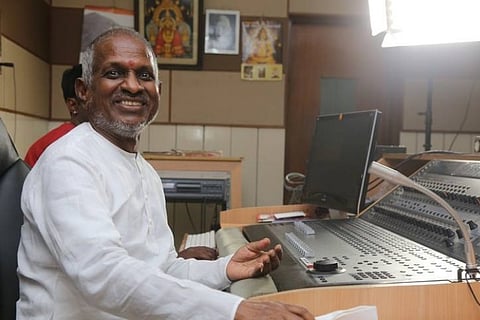

Follow TNM's WhatsApp channel for news updates and story links.
The Madras High Court, on Friday, September 26, directed Sony Music Entertainment India Private Limited to produce records of revenue earned through what was described as the “commercial exploitation” of music composed by Ilaiyaraaja. Justice N Senthilkumar issued the direction while hearing a civil suit filed by the veteran composer against Sony Music, Echo Recording Company Pvt. Ltd., and Oriental Records, alleging unauthorised exploitation of his works.
According to Live Law, Ilaiyaraaja argued that under the Copyright Act, 1957, he remains the first owner of his compositions in the absence of any written assignment to the contrary, and that he possesses “inalienable moral rights” under Section 57. “Any person or entity seeking to use such protected works…is legally obligated to obtain the necessary permissions directly from the rightful owner,” he said.
Counsel for Ilaiyaraaja, senior advocate S Prabakaran, told the court that his client’s relationship with film producers had always been on a “principal-to-principal basis” and never as “work for hire”. The petition sought a full accounting of revenues generated since February 18, 2022, from more than 300 films, across platforms such as YouTube, Apple Music, and Amazon. The plea also alleged that Sony Music had been modifying, remastering, and even “mutilating” the original works without authorisation.
Ilaiyaraaja emphasised his creative independence, stating, “I singularly conceive, develop, and execute my compositions with full creative independence, without external interference.” He contended that Echo Recording Company had only been licensed to sell audio cassettes and CDs, and not to transfer rights for digital exploitation. He questioned the authenticity of subsequent agreements through which Sony claimed to have acquired rights from Echo and Oriental Records.
Senior advocate Prabakaran argued that Sony had distorted Ilaiyaraaja’s songs by remixing and adding beats, which, under Section 38B of the Copyright Act, entitled the author to restrain or claim damages if such modifications were prejudicial to reputation. Sony’s counsel, senior advocate Vijay Narayan, however, contended that rights had been lawfully purchased through a chain of assignments involving Echo and Oriental, and argued that not every modification constituted distortion under the law.
Narayan further pointed out that similar proceedings were already pending before the Bombay High Court and a Division Bench of the Madras High Court. He argued that Ilaiyaraaja had earlier failed to transfer Sony’s Bombay suit to Chennai and could not seek identical relief through a fresh petition.
Justice Senthilkumar noted that the matter required examination of the agreements between producers and the composer, and posted the case for further hearing on October 22. Meanwhile, the court directed Sony Music to furnish day-to-day revenue details from the use of Ilaiyaraaja’s songs and films until the next hearing.